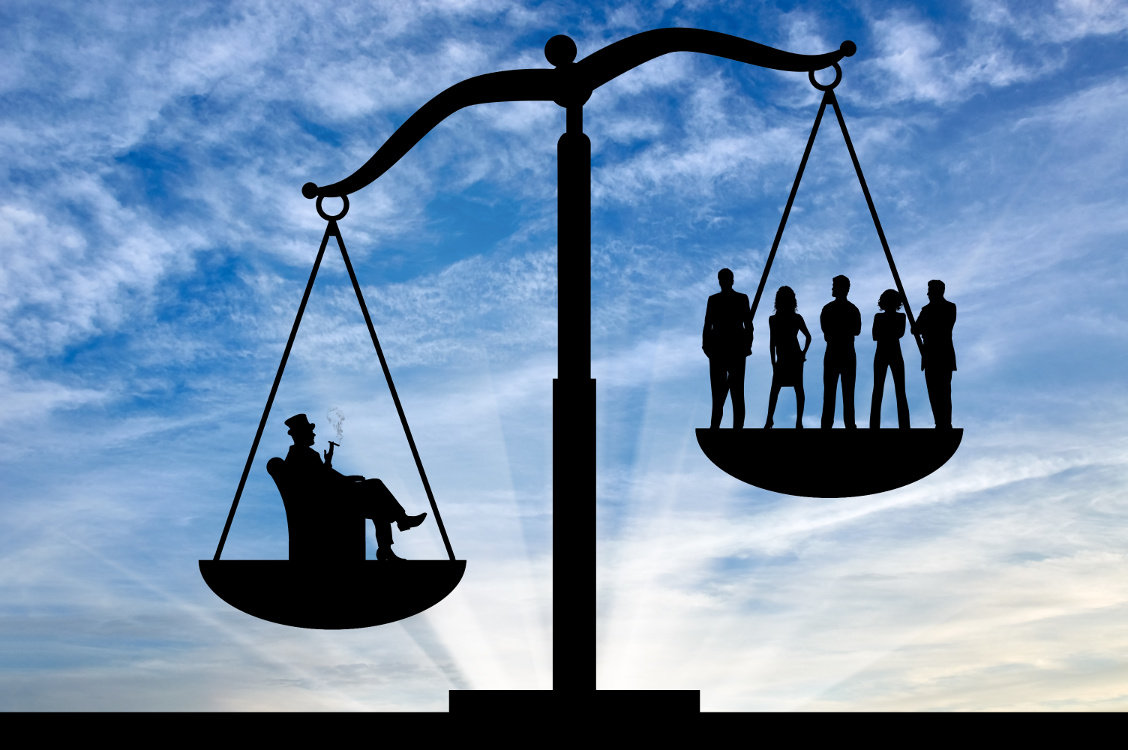WORLDVIEW: The curse of inequality

By Jonathan Power
Every so often reports emerge that attempt to measure which are the best countries to live in. The Nordic countries plus New Zealand, Holland and Switzerland, usually come out top. Sweden is number one just for the sheer stability of life and security. Denmark is seen as the most agreeable place to live. The highest rate of longevity is found in Japan. The best schools are in Finland, New Zealand and Canada. Political and press freedom put the Nordics at the top of the league.
Last year, the Legatum Institute based in London published a report looking at inequality. Its timing could not be more perfect with the newly elected US Congress saying it will undo the harm caused by President Donald Trump’s tax bill which increased inequality by a substantial amount.
In 2013 the French economist, Thomas Piketty, published his blockbuster book, “Capital In The Twenty-first Century”, arguing that inequality was steadily increasing. There was wide acclaim, and quite a bit of criticism. The debate over the book raged in the serious newspapers and journals for many months.
Earlier this year the Legatum Institute hired Picketty to answer the criticisms and to enlarge his findings. His new report, drawing on several years’ work, tries to answer four questions. First, where is inequality most pronounced? Second, is the world becoming more or less equal? Why are the experiences of Europe and the US so different? Fourth, have we returned to the levels of wealth inequality last seen a century ago?
Picketty and his collaborators fashioned a World Wealth and Income Database that positions every country in a league table.
The most unequal region in the world is the Middle East, where the top 10% receive 60% of all income. India, Brazil and sub-Saharan Africa are not far behind.
The most equal region is Europe, where the figure is 37%. China is the next most equal, with a top income share of 41%. This comes as a surprise considering the media often focuses on what it claims is the country’s widening inequality.
One other surprise to me is the finding that in most parts of the world, over the past decade, income inequality has fallen or stabilized. Nevertheless, there are many countries where inequality has got seriously worse.
It rose fast in the United Kingdom and in Russia during the 1990s. In the US it started to rise fast in the 1980s and has gathered steam ever since, not least because of regressive Republican-led, tax policies, and the unequal availability of good schooling. Educational inequalities in the US are “massive”, says the report. Yet the US and Western Europe had similar levels of inequality in 1980. In Europe over the last forty years, except in the UK, it has either stabilized or improved.
The poorest half of the American population received 24% of all income and 21% in Europe in the 1990s. Since then in Europe these income shares have changed only a little. In marked contrast, in the US the share of income received by the top 10% has nearly doubled, to 20%, and the share received by the bottom half has roughly halved to 13%.
What about wealth inequality? This includes such things as the housing and property owned, the money saved in shares and banks, the cars and in some cases the planes and yachts owned. It includes what has been inherited.
The share of wealth held by the richest 1% of people has been rising in many countries since the early 1990s. In the US, the richest 1% held 27% of the nation’s wealth in 1990. This rose to 37% by 2014 and is still rising. Still, it’s not as bad as in the early years of the twentieth century when in 1913 in the UK the richest 1% held two-thirds of the nation’s wealth. By 1988 this share in the UK had fallen to 15%.
High rates of home ownership, rapid house price growth since the mid-1990s and a liberal inheritance attack have dramatically boosted the wealth of the middle class. All western countries have a growing middle class that has experienced this good fortune to a smaller or greater extent. In some cities, like London, Washington DC, Paris, Berlin and Stockholm house prices have rocketed. The poorish, but wise, twenty-five-year-olds who bought in the 1960s have become millionaires.
I add my own thoughts to all this to fill out the picture. In recent years prosperity has grown in by far the majority of countries, governance and personal freedom have improved, the number of wars, deaths from wars and the number of people living in the direst poverty, suffering the worst diseases, has gone sharply down, especially in the Third World. Only in the US do we see a significant setback in such good fortune. Tragically for many, under Trump, it is going to get worse.





